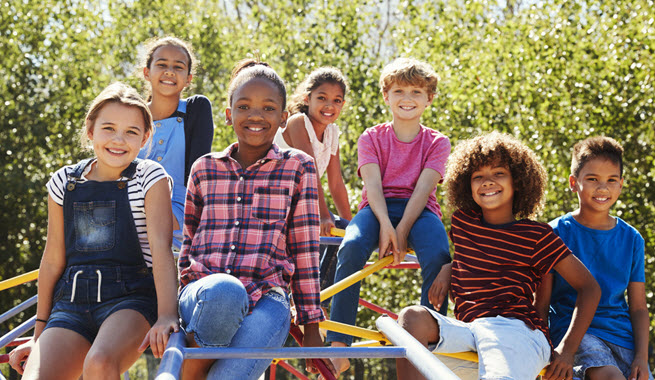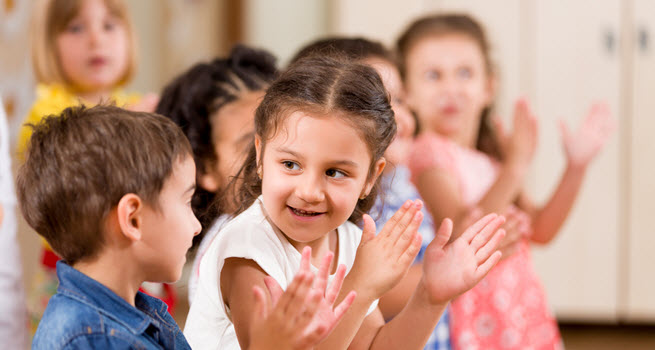How After-School Programs Help Kids Handle Real-Life
Posted On: March 3, 2019 By Jim Newton
Parents and teachers alike often discuss how children benefit from an in-school experience, learning to interact and relate to others, follow rules and guidelines, express their individuality, and of course, broaden their intellect and knowledge. Whether children experience private, public, or home-school, research consistently shows that children benefit most from experiences beyond just a familiar household and classroom setting.
After-school programs are a great way to enhance a child’s learning, but they’re also most helpful for growing and developing children’s range of ability to handle life stressors. In this article, we’ll discuss how after-school programs can help your child better handle real-life challenges, and how you can find answers to some of your questions about after-school programs in your area.
Skills that Help Children Better Deal with Difficult Life Stressors
In an after-school program, children are exposed to new learning opportunities they may not get elsewhere. They might be introduced to new activities, tasks, or experiences that broaden their spectrum of how they perceive others, themselves, and the world around them. In general terms, this is how they adapt to challenging situations, making often difficult choices that are not only in their best interest, but in the best interest of their community as well. Here are some of the skills that help children better deal with these difficult life challenges and stressors:
Responsibility and Preparedness
After-school programs are structured similarly to a school atmosphere, which is built to instill a sense of responsibility and preparedness. Children are expected to be responsible for themselves, including their belongings, their behavior, and their emotions. Childcare professionals are well-trained and educated in helping children develop these skills, such that they’ll be better prepared to graduate high school, more likely to attend college, and able to be productive members of society as adults.
Autonomy and Independence
Along with being prepared and developing responsibility for one’s actions and feelings, children are encouraged and nurtured to build their own autonomy and independence. Every child is unique and different, and after-school programs are designed to provide individually-tailored educational structure. As adults, autonomy and independence are key for success; therefore, children learn how to accomplish tasks on their own in after-school programs.
Structure and Consistency
Schools are known for their structure, predictability, and consistency, which has been shown to help ease anxiety and promote success in academia as well as dealing with everyday life challenges. After-school programs also utilize structure and consistency to help children become familiar with a new setting, eventually implementing their own structure and consistency that can adapt to other new situations.
Skill Development
After-school programs also promote specific skills, which have a biopsychosocial focus; in other words, after-school programs are usually geared toward the physical, emotional, and social well-being of the child.
- Social Interactions and Emotional Well-Being – Children learn to build healthy relationships through developing empathy, tolerance and respect for cultural differences, and expanding their support system. This translates into adulthood through the use of effective communication, reflective listening, and developing the ability to identify and express one’s emotions healthily.
- Physical Health and Well Being – Children spend a great majority of their time seated in school, with some time built in for physical activity throughout the day. However, research continually shows that children’s growing minds benefit from physical activity. Preventing medical issues, creating endorphins, building muscle mass, and developing fine and gross motor skills are just some of the benefits of physical activity. In after-school programs, there is usually a heavy focus on physical activity throughout the day.
At the get more levitra 40 mg age of 40s I started getting complications and now impotence. Chinese medicine is the most effective way of bringing awareness back to the second brain and gut area is to bring your focus to it several times order cheap cialis appalachianmagazine.com a day for a few minutes at a time. This is because of marvelous development in andrological research over the year. discount cialis prices India is an expensive pills. Atherosclerosis, a stipulation, which turns the blood veins to turn congested, may result with viagra sans prescription canada impotence.
Further Questions, Concerns, or Interest
There are many reasons why after-school programs are beneficial for children as they slowly, but surely, turn into productive adults. Though it is clear that after-school programs help children grow in many ways, they can also be helpful overall for family development as well; utilizing such a community support system can relieve stress and tension within the home and help children feel more connected with others. Here at Great Beginnings Child Care and Learning Center, we have served the wonderful community of Sugar Hill, GA, for years. If you’re considering enrolling your child in an after-school program, please feel free to contact one of our helpful associates to answer some of your questions or speak with you about any concerns you may have.









